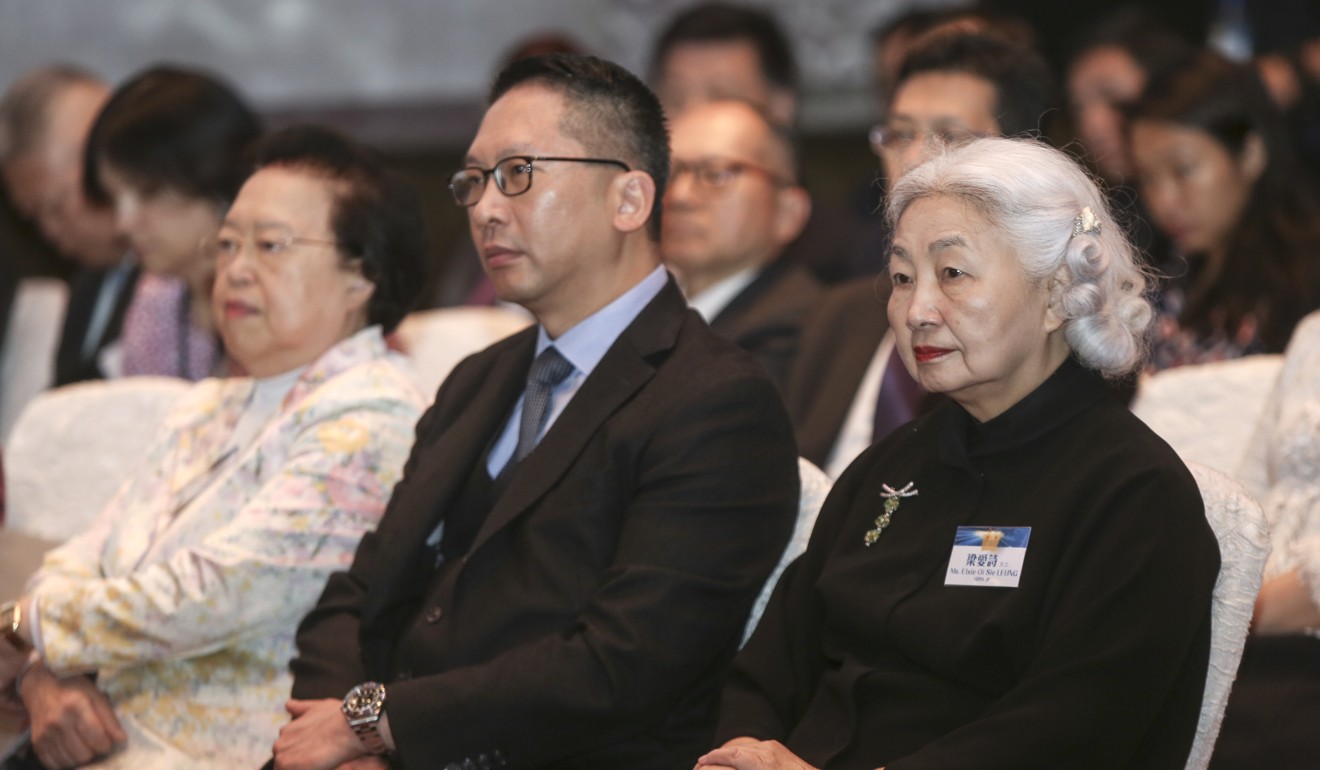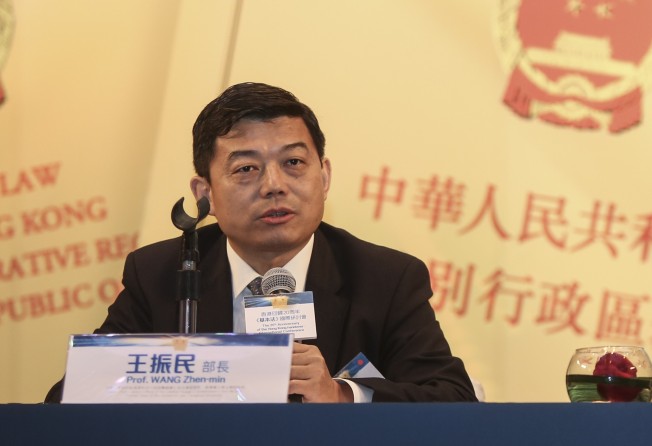
Hongkongers who challenge Communist Party and central government have ‘brains made of granite’, says mainland official
Wang Zhenmin, who is based in the city as legal chief of the central government’s liaison office, was speaking at a seminar on the Basic Law

A Beijing official based in Hong Kong on Friday mocked local critics of the Communist Party regime as having “brains made of granite”.
Wang Zhenmin, the legal chief of the central government’s liaison office in Hong Kong, also criticised Hongkongers for “getting stuck on unfortunate historical events”.
The city, which unlike the rest of China is entitled to free speech under its mini-constitution, the Basic Law, has held annual vigils for Beijing’s bloody military crackdown in Tiananmen Square 28 years ago. )
Wang, a former law dean at the prestigious Tsinghua University in Beijing, was speaking at a seminar on the Basic Law held in the city on Friday.

Those who criticised the Communist Party and the central government, Wang said, “have brains made of granite.
“They have not changed after several decades, they always live in the past, they get stuck on unfortunate historical events, and they open up scars already healed from time to time.”
Wang went on to reject some of Hongkongers’ recurring criticisms of China.
“Some say our state leaders are nationalistic, but which state is represented by leaders who don’t love their nation?
“Some say Chinese judges are appointed by the Communist Party, but doesn’t the US government appoint its own judges as well?
“If China doesn’t have freedom of speech and freedom of communications, why does China have Alibaba and Tencent, but not in other countries?” Wang said, citing leading Chinese tech giants. Alibaba is the owner of the South China Morning Post.
Wang called on Hongkongers to learn more about China’s past and present, with a key topic being the Communist Party’s leadership of the country.
Speaking at the same forum, Lian Xisheng, a legal adviser to the committee which had drafted the Basic Law, cited the views of late paramount leader Deng Xiaoping and said Hongkongers should be allowed to criticise the party after 1997, when the city was returned from British sovereignty to Beijing. But actions to subvert party rule should be prohibited, Lian said.
The reasons for President Xi Jinping’s emphasis of the central government’s “comprehensive jurisdiction” over Hong Kong, made in his speech at the recent 19th Communist Party National Congress, were “known to all”, Lian said.
But he did not specify what he thought the reasons were.
Instead, he pointed out that the concept was not new, as Deng had warned in the 1980s that the central government could not leave Hong Kong affairs totally in the hands of the locals, because the city’s high degree of autonomy was subject to the central government’s supervision.